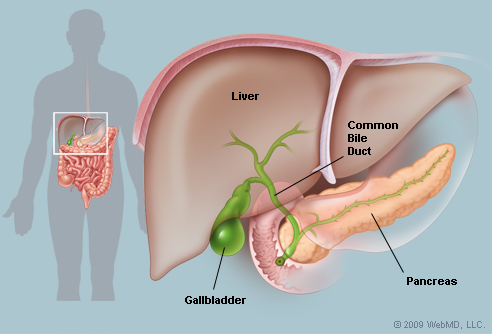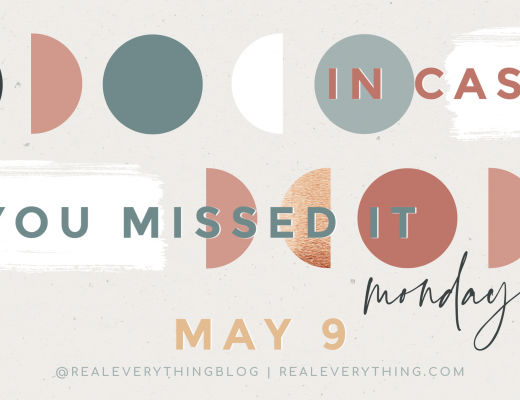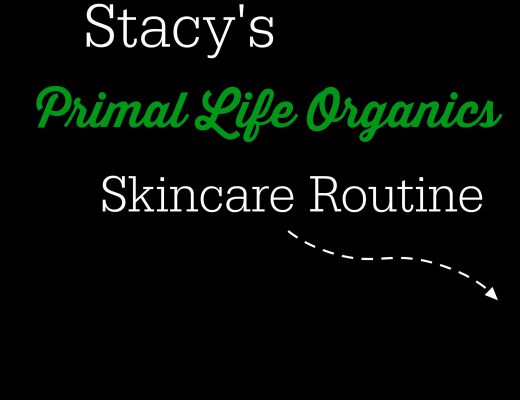I spent the entirety of my pre-pubescent life as a vegetarian. Looking back, I’m horrified by the Not Dogs, Tofu Bacon and LoveBurger I consumed. I remember being disgusted as I watched my mother make LoveBurger: a box of bird seed, a bottle of ketchup and a wish and a prayer it’d be edible after a while in the oven. I got caught hiding it in the milk carton once after lying that my slumber party friend and I had finished dinner. It was THAT bad.
Back in the late 80’s there wasn’t an entire section of your regular grocery store dedicated to vegetarian and “health foods”. My mom resorted to what I now think of as pretty gross foods in order to get my brother and I on-board and not feeling like we were “different”. I can totally relate to that approach, after all it’s what we’re doing with paleo(ish) treats and things like Meatza and Spaghetti Carbonara. Except, we’re making our foods at home and those vegetarian products are made in a factory with a bunch of ingredients I now fear.
As flawed as those vegetarian man-made genetically-modified mass-manufactured food products are, my mom genuinely thought she was offering our family optimal health. She loved animals, and after reading about and seeing CAFO videos we were convinced we didn’t want animals treated like that. My brother and I both agree, we just took it two different directions. I grew up to now support humane and sustainable farming and he is a vegan. It’s why this site is more vegan-friendly than some other paleo hot spots. I often say that vegan, vegetarianism and paleo aren’t THAT different. In my case, we’re coming from the same place – literally the same upbringing.
For my mom, that inspiration and origination came from some personal health issues. She decided eliminating meat from our diet would be the healthiest approach for our family. She and I were both overweight. Problem is, turns out those 7 years of low-fat, high-carbohydrate vegetarianism wasn’t the best thing for us after all – it would take us more than a decade to figure that out though.
Years after being on a vegetarian diet, my mother was struggling with severe gallbladder attacks. I remember her having to pull her car over on the side of the road and vomit and cry from pain. She tried everything the doctors said – eating lots of crackers and broth soups with noodles, making sure her fat intake stayed super low. But she had a gallstone blocking her common bile duct – extremely painful and impossible to eat ANY foods. Not long after, in her mid-thirties, my mother had her gallbladder removed. I personally never thought anything more of what that meant for her, since the symptoms and attacks alleviated. Little did I know, that to this day she still struggles with the repercussions of that surgery.
It wasn’t until my mid-twenties, after the birth of Cole, that any of this came back to me as a memory. I myself began having gallbladder attacks. Since I have an extremely high pain tolerance, I didn’t even realize what it was when they first started.  But eventually they became stronger and more frequent. One attack a month turned into one a week, turned into one or more a day. Since I was so young and had just had surgery with the birth of Cole, I was prescribed a giant bottle of Percoset and the same super stupendous and ever successful low-fat, high-carbohydrate diet as my mother. I remember popping those pills at work, like they were candy.
But eventually they became stronger and more frequent. One attack a month turned into one a week, turned into one or more a day. Since I was so young and had just had surgery with the birth of Cole, I was prescribed a giant bottle of Percoset and the same super stupendous and ever successful low-fat, high-carbohydrate diet as my mother. I remember popping those pills at work, like they were candy.
I tried desperately to avoid the doctor because I didn’t want surgery again. I did everything they said. But I found myself in the ER one night, screaming in agony from hours upon hours of pain I cannot begin to describe (I dare say, worse than the worst of my labor pains). An ER nurse asked me to rank the pain and I moaned, I guess a gunshot to the head might feel worse. Shortly after, I was whisked away for an ultrasound (to confirm what everyone had known all along, a metric ton of gallbladder stones) and given orders to see a surgeon to have my gallbladder removed.
Now, let’s take a moment to reflect on my mother and I’s story to this point:
- We were each prescribed a low-fat, high carbohydrate diet – which we followed in desperation to make the agonizing pain stop – but it never did
- We were told to have surgery to resolve the issue… the issue being our gallbladder making stones. No one was interested in finding out WHY our gallbladders were making stones.
- We were overweight women and the assumption was that we could not possibly have been following the prescribed low-fat diet, since fat was SURE to be the cause of our problems
- My mother and I both had had c-sections, turns out this can be a trigger for many women to “suddenly” have issues with their gallbladder – which, again, no doctor ever told us
So there I am, at the surgeon’s office. I had lost weight after giving birth to Cole and having gone dairy-free, but was still morbidly obese. I was exhibiting nearly every single possible symptom of gluten intolerance known to man (only, I didn’t know that). I’m telling the doctor I’d like to get pregnant again soon. He’s telling me:
Oh, that’ll be no problem! You’ll have this surgery laproscopically. You’ll have a short recovery time and you’ll be back to normal in no time! You might have some issues digesting food for the first couple weeks after the surgery – but, your body doesn’t need a gallbladder. It’s just like your appendix, you won’t even know it’s gone!
BULLSH*T.
Here are the facts that he spoke:
- I had the surgery; it was laproscopic, and the incisions healed when he said they would (thankfully Finian was conceived shortly after I recovered on the first try, we never had fertility issues).
- I had discomfort alright.
Here’s what he didn’t tell me:
- I pooped my pants for weeks after the surgery. Literally.
- I had diarrhea and loose stools for years – in fact, I would have been classified as having IBS except that’s “normal” after having your gallbladder removed. I never had a normal poop again until I went Paleo and strictly grain-free after Wesley was born (4 years later).
- When I went back to the surgeon’s office a year and a baby later, to inform him how ill my bowels were, I was told this was “normal” and that it “might” improve years down the road if I stuck to a low-fat diet (the one I was already on and wasn’t working) NO warning of this was given.
- Oh yea, and that one small detail… gallbladder disease is a common symptom of gluten intolerance, and likely had nothing to do with the (lack of) fat in our diets!
- Your body DOES need a gallbladder. It’s not like feet in the cavity of a whale; we know what it does!
Since we’ve now removed a functioning organ, my body no longer processes foods the way my husband, my kids or yours does. It never will, because I’m missing an organ. What was I thinking? Why did I volunteer that up? Oh, right. Because I trusted a medical professional to know what he was talking about. Oops.
As a result, I can’t do a ketogenic diet. Even the 21 low-carb sugar detox gave me loose stools. My poor metabolically deranged body is so confused. It’s like Hey lady, go low carb and you’ll lose weight and feel great! Oh wait, not that low carb. You can’t because you no longer have the organ you need in order to process the high fat diet I want you to be on.
I say often that I’m likely Celiac but that I won’t ever get tested. That’s because I likely know more than most doctors on the topic of gluten. And really, it doesn’t matter because my treatment is the same: I will never eat gluten again. In order to test positive for Celiac Disease, I’d have to eat gluten non-stop for something like 6 weeks – in which case I’d be severely ill. If I know I’ll get ill eating it, why do I need a test to tell me not to? Not surprisingly, my mother has also gone gluten-free in the past year or two and has has much improved health, too. I’m still trying to get her on Paleo to help with other lingering health issues… but, I’ll get her there eventually!
Instead of sitting around, sulking about how irate I am that a doctor put me under the knife for major surgery to remove a functioning organ without even seeing if I perhaps had a food intolerance – I’ll focus on the positive. Let’s skip to when Wes was born and I found The Paleo Diet. And then I purged our pantry, and pledged down a grain-free path. And then lost an insane amount of weight in mere weeks and felt better than I had in years. And then realized…
Holy crap, my poop is normal! I don’t have to run to the bathroom after a meal! My hair, nails and skin all seem stronger and healthier! And I’m HAPPY and energetic. Am I, perhaps FINALLY, properly digesting food? Is the fat I’m now eating as part of a low carb diet improving the quality of my life as well as my health?
Of course, the answer is yes. At this point I would like to refer to you a few people who are much smarter than I. Like Diane from Balanced Bites and Robb Wolf and Mark Sisson and Chris Kresser. These people and their logical approach to nourishing humans rather than feeding them saved my life. And they can save yours too. I’ll do my best to condense what I’ve learned, but I highly encourage you to check out their sites for more on healthy fats, good digestive health and eating the foods you were evolved to eat.
I knew I was digesting better and had resolved the IBS I’d had for years with going Paleo. I knew that going grain-free had helped stabilize my mood and a variety of awesome other things as well as take away weight that had perpetually crept on for years. But for some reason, it didn’t occur to me that the fats and protein I was eating also would affect my gut health until I attended the Balanced Bites Seminar. There’s a lot of useful information in this post about what I learned that day, but most importantly was how I needed to think about my body differently because I didn’t have the same organs that most other people have.
Learning the differences between oils and fats, why they’re different and how a person’s body responds to them changed my perspective on what an important piece of the puzzle was to my health. After that day I started paying close attention to the foods that I ate, how my gut reacted, how my digestion was and ultimately if excretion was “normal” after. After months of testing, here’s what I have found to be absolutes for my body:
- The introduction of grains of any kind are extremely problematic. This includes:
- Even grain based oils. Using the chart above, I never eat foods in the red (unless I plan on being on a toilet shortly after). If I want to splurge on french fries, I’ll go out of my way to visit the bunless burger joint who cooks in animal fat and olive oil.
- CAFO animal meat. I notice when the animal I’m eating has been fed nothing but corn or soy – my body doesn’t process that protein correctly. Sometimes when we eat out, I’ll be sure I avoided gluten but still get gut wrenching pain after. I’ve been able to piece together that it’s because of the quality meat I’m being served. Now, this is not to say what we eat in the house is and has to be 100% pastured, grass-fed meat all the time. It’s a goal, but we frankly just can’t afford that (yet). We do buy mid-grade all the time and buy our fattiest cuts from awesome sources likes US Wellness Meats, Grass-Fed Traditions, Mount Vernon Farm and Polyface. Otherwise, if Matt cooks a pork shoulder or potroast from the grocery store – I’ll have loose stools after.
- The introduction of food after not eating for a length of time can disrupt my digestion, significantly. Because my body no longer possesses the ability to properly breakdown food, it can’t handle a huge load if it’s been turned “off” for a while. So when I intermittent fast (which is fancy talk for skipping a meal if I’m not hungry), I break the fast with a small meal eaten slowly and not too high in fat. I find a hard boiled egg or two is a perfect introduction to eating again, but a load of bacon and eggs (my usual breakfast) will have my stomach upset if it’s been more than 10-12 hours from my last meal.
- Adding gut healing foods to my diet is super helpful.
- Coconut: we cook with coconut oil and palm shortening a lot. I have a coconut milk smoothie at least twice a week. I have coconut truffles once a week. I’ll snack on coconut chips. I’ll do whatever I can to get more coconut into my diet. I find that the more I eat of this gut-healthy stable fat, the more my body recovers from “bad” foods.
- Eating more pro-biotic rich food is helpful in healing my gut too. I don’t overdo this, maybe 3-4 times a week I’ll have either kombucha (4-6 oz) or raw sauerkraut (1/3 cup).
- Adding the super food of bone broth into my diet always alleviates any kind of problems I may have, and it’s a great preventative as well. Matt makes a batch once or twice a month of both beef and chicken from leftover bones he saves, and then he uses the broth to cook with and makes a soup. Some people drink it by the mug in the morning, but I’m just not that hardcore (yet).
- Carbs, I need ’em. I don’t count the carbohydrates I consume, but if I did they’d still be on the VERY low side for mainstream America. I think I sit happily around 80 grams on a day-to-day basis. I don’t eat many dense carb sources because I’m not super active and they make me gain weight. If I don’t get enough veggies or if I eat veggies much lower in carbs, I know right away. If my carbs dip below 50g a day, my stools become loose. Logically, it would stand to reason that the carbs are aiding in digestion and helping to keep my fat at the moderate level my body needs. I listen to my body’s hunger cues and stop eating when I’m full. If I eat around 80g of carbs per day, the relative fat is processed perfectly. More carbs, I gain weight, less carbs I feel the IBS-like issues arise again. Here’s how it breaks down:
- I have about a cup of fruits & veggies with lots of protein and fat for breakfast. (a smoothie or bacon with eggs with veggies and bacon = 10-30g)
- I often have a salad with protein and homemade salad dressing for lunch (or leftovers) = 15-20g.
- Sometimes I snack on raw carrots, an apple or nuts in the afternoon for a snack = 15-20g
- And for dinner I have a large portion of meat and veggies on the side (cooked in animal fat or coconut oil). If I have a dense carb, it would be here – since this is the meal I share with the boys and they need more than me = 20-30g
I know this goes against everything you’ve read or heard about gallbladder health. Just put down the peanut butter on white bread. Say no to crackers. It’s not helping anyone – it’s not going to help you, either. Of the hundreds of people I’ve talked to through this site and in life, not a single one tells me they recovered from gallbladder disease by eating a low-fat diet. However, I’ve heard LOTS who recovered from going grain-free and low-carb .
I would hypothesize the below protocol is just as effective for preventing and curing gallbladder disease, as I would say it helps after you’ve had one removed. The reason for that is simple: it is a rare case someone’s gallbladder malfunctions without cause. Figure out the cause (grain intolerance, for example) and then the gallbladder will no longer be ill. Gallstones are a symptom something else is wrong. If you get it removed, you haven’t solved the problem – just removed the symptom. Long-term grain intolerance can cause ugly, nasty symptoms as you age.
So, what you want the TLDR version of what you should do? Although my old surgeon would tell me that I should be on a low-fat diet to aid digestion, I’ve switched to a low-carb (high fat and protein) diet. The result has been immediate and amazing results, both digestive and health wise (before you ask, I have great cholesterol – this is another “myth” for another day).
If you’re looking for an answer key, here it is (in my order of preference):
- Do not eat grains. Any. Yes, seriously. Yes, corn is a grain. Or legumes. Or anything that is difficult for you to digest. Your body’s been through enough, eat simple to process foods – like fat and protein. If it comes out whole in your poop (corn, peas, sesame and flax seeds), avoid it.
- Do not consume any oils unless they’re uncooked. Cook only with fats (solid at room temperature, the green ones in the above chart).
- Start introducing gut healing foods into your diet, like coconut oil, bone broth, probiotics (found in raw sauerkraut or kombucha) and apple cider vinegar.
- Eat the highest quality meat you can (this ties into step 1: avoid grains).
- If you make these changes and are still uncomfortable, try supplementing with bile. I personally find that the steps above absolutely take care of any issues I have, but you could be more sensitive. As anti-supplement as I am, my dear friend Liz from Ancestral Wellness put it best when she told me Although you’re right that you should be able to get what you need from eating, your body no longer has what it needs to get it from the normal food cycle anymore. Taking a bile supplement is only giving it back what you took away.
And to summarize the entire post up for you, I did a little test today. I ate the highest fat foods I could find in the house. I had 6 pieces of bacon for breakfast. I had a meatloaf with extra lard (and veggies) for lunch. I had a coconut milk fruit smoothie with bone broth soup for dinner. The result? One absolutely healthy and pain-free bowel movement. What would you rather have breakfast: 2 eggs, 3 pieces of bacon and veggies cooked in bacon fat or low-fat sugar-filled pasteurized yogurt from a sick cow and a handful of gut irritating sugar-laden grains thrown on top? I guarantee you the first not only tastes better, it’ll make you feel better to.




